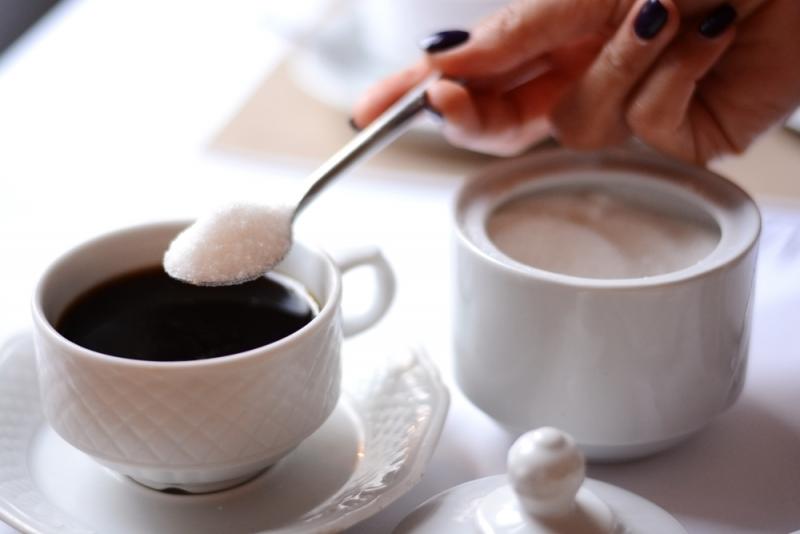These small tweaks can add up to big longevity benefits.
In the United States, the life expectancy is just over 79 years. But how can you make those healthy, happy years? Dan Buettner, founder of the Blue Zones philosophy and research, has a few tips. In fact, Buettner, a National Geographic fellow and explorer as well as an Emmy Award-winning journalist and producer, has written five best-selling books on the topic.
The Blue Zones idea is less about research and more about a dynamic lifestyle. It is based on Buettner’s findings after visiting the five Blue Zones across the world—which are regions with the highest concentration of residents who reach their 100th birthdays. His work touches on everything from what’s on your plate to how you socialize and environmental factors that might impact your lifestyle.
While some ideas might seem big and abstract, Buettner breaks down several small, actionable steps you can take every day in his book The Blue Zones Solution: Eating and Living Like the World’s Healthiest People.
10 Things to Do Every Day to Help You Live to 100, According to Experts
There are several different ways to be healthy, and the Blue Zones are a testament to that. That said, there are a few things that remain consistent across the board. Here are 10 things you can do every day to help lead a longer, healthier life.
1. Carry a water bottle everywhere
Hydration is important for so many bodily functions, from your brain and heart to your joints. One of the easiest (and most Earth-friendly) ways to drink more water is by carrying a reusable water bottle with you wherever you go. In a Blue Zones interview with Ellsworth Wareham, M.D., a 98-year-old member of the Seventh-Day Adventist community, a Blue Zone community in Loma Linda, California, he says he never passes a water fountain without filling up.
2. Practice the 80% rule
Another Blue Zone community can be found in Okinawa, Japan, where they boast the highest concentration of female centenarians. While there are many diet and lifestyle factors that might contribute to their impressive longevity, one concept is called “hara hachi bu”” This is a Confucian-inspired adage that roughly translates into a reminder to stop eating when you are 80% full. This means to stop eating when you are no longer hungry, instead of when you are feeling stuffed. It takes some time for our stomachs to relay to our brains that we are full, so this can help us be more mindful and eat until we are satisfied rather than overeating.
3. Snack on nuts
One food commonly eaten in several Blue Zones communities is nuts. Not only are they delicious and versatile, but also they are packed with filling, healthy fats, fiber and nutrients. In fact, they are one of the best foods you can eat for your heart health. Since heart disease is the leading cause of death in the U.S., help protect your heart by eating nuts daily.
4. Eat beans daily
All of the Blue Zones communities have plant-focused diets where they enjoy meat only on occasion, if at all. Instead, residents eat beans as a source of filling and nutritious protein. Whether they are consumed in the form of black beans, lentils, hummus or tofu, beans provide ample fiber, protein, vitamins and minerals, nutrients that are crucial for healthy aging. Not to mention, they’re incredibly budget-friendly and versatile.
5. Walk when you run errands
One thing that was consistent throughout the Blue Zones communities in the book was building in low-intensity physical activity into their daily routines. This might have been tending to a garden or livestock animals or walking to run errands. To help mimic this in your life, try walking or biking to your destination when you can. It helps you build in more physical activity while hardly realizing it.
6. Limit meat to once per week
Whether it’s for monetary constraints, available resources or religious preference, residents of all of the Blue Zones communities typically only enjoy meat as a special treat rather than a nightly staple. In fact, many only eat meat once a week and in smaller portions than what we are used to. If you typically eat more meat than this, try slowly cutting back by adding one or two more plant-based days per week or month. We have a few genius vegetarian recipes that swap in vegetables for meat to help inspire you.
7. Schedule in social time
Social support is a crucial part to health and longevity, and can help prevent diseases like dementia. In Okinawa, they follow a tradition called moai where you establish a group of lifelong friends to lean on through all of life’s triumphs and challenges. To help you reap the benefits, schedule regular social time with a few close friends. This can be a happy hour at a local restaurant, a walking date or even a video call if you can’t get together in person. Rather than what you do, the more important piece is being consistent to help strengthen your social relationships.
8. Make time for hobbies
In all of the Blue Zones communities, people have hobbies or things outside of work that help give them a sense of purpose. Many people simply describe it as a reason to get out of bed in the morning. Maybe this is tending to a garden, having a pet or knitting. It might be taking care of extended family or volunteering within your community. So long as it’s something that feels fulfilling to you, that’s what is important.
9. Surround yourself with support
Your friends and family can have a big impact on your physical, mental and emotional health. Whether they do it knowingly or not, Blue Zones communities have what is often referred to as a “social safety net” of people in their community that look out for them and vice versa. To help build this into your daily life, invite family and friends into parts of your healthy lifestyle. Make a plant-based meal together or go for a walk at a local park. Surrounding yourself with people who have similar goals and values can help you feel supported and build in a level of accountability.
10. Cheers!
Almost all of the Blue Zones communities (barring the Seventh-Day Adventists, who abstain for religious reasons) enjoy alcoholic beverages in moderation. This includes red wine in Sardinia, Italy and Ikaria, Greece, and brandy in Okinawa. Having a drink can help you relax and reduce stress, which is good for reducing inflammation, boosting heart health and stabilizing body weight. Plus, some research has even found some health benefits to drinking wine, thanks to antioxidants like resveratrol.
Bottom Line
To be clear, even if you do all of these things, it is not guaranteed that you (or anyone) will live to 100. But the Blue Zones communities are the most consistent in the world at reaching triple digits. There are several ways to be healthy, and these common habits have been shown to lead to healthy longevity. Try adding one (or several) of these small tweaks into your routine to reap the benefits.


